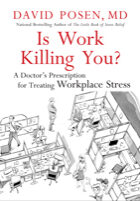In 701 B.C. the Assyrian empire was in its ascendancy. It had already vanquished the kingdom of Israel to the north including the capital at Samaria. It then prepared an assault on Judah and its capital at Jerusalem.
But in one of those significant events that changes the course of world history, Assyria was repelled. Jerusalem was saved until 586 B.C. when the Babylonians sacked the city, forcing its leadership class into exile.
Henry Aubin, in a major feat of scholarship, determines that Jerusalem was aided by a Kushite army from Africa which had marched northeast from the Nile valley. While the Bible attributes the Assyrian retreat to an angel and secular commentators cite pestilence, Aubin, in a meticulously documented work, demonstrates that an alliance with the African nation of Kush bolstered Jerusalem’s defences.
Kush, also known as Nubia, was located in what is now southern Egypt and northern Sudan. A monarchy that existed for more than 1000 years, from 900 B.C. to A.D. 350, Kushites held sway over Egypt from 712 B.C. to about 660 B.C. Of Egypt’s 31 dynasties, this, the 25th Dynasty, is the only one that all scholars agree, was black.
The commander of the Kushite expeditionary force was Taharqa (or as the Bible calls him Tirhakah). This Kushite prince, who had his own interests in halting Assyrian expansion, likely caught the aggressors by surprise as they prepared their siege of Jerusalem.
Aubin offers a thrilling military history and a stirring political analysis of the ancient world. He also sees the event as influential over the centuries.
The Kushite rescue of the Hebrew kingdom of Judah enabled the fragile, war-ravaged state to endure, to nurse itself back to economic and demographic health, and allowed the Hebrew religion, Yahwism, to evolve within the next several centuries into Judaism. Thus emerged the monotheistic trunk supporting Christianity and Islam.

David Posen, M.D is a family physician who counsels patients on stress management and gives seminars on how we live and what we can do to improve the quality of our lives.
House of Anansi (CAN) 2013
Is Work Killing You?
A Doctor’s Prescription for Treating Workplace Stress
From the bestselling author of The Little Book of Stress Relief comes the definitive guide to treating — and eliminating — excessive stress in the workplace. Dr. David Posen, a popular speaker and a leading expert on stress mastery, identifies the three biggest problems that contribute to burnout and low productivity: Volume, Velocity, and Abuse. He shares revealing anecdotes and offers clear descriptions of the biology of stress to illustrate how downsizing, economic uncertainty, and technology have made the workplace more toxic than ever. Most importantly, he offers practical advice and easy techniques for managing the harmful symptoms and side effects of stress.
Witty, engaging, and accessible, Is Work Killing You? touches on everything from meetings to tweeting, from fake work to face time, from deadlines to dead tired, and more. With this book, Dr. Posen gives us the tools to stop harming our most valuable resource — ourselves.